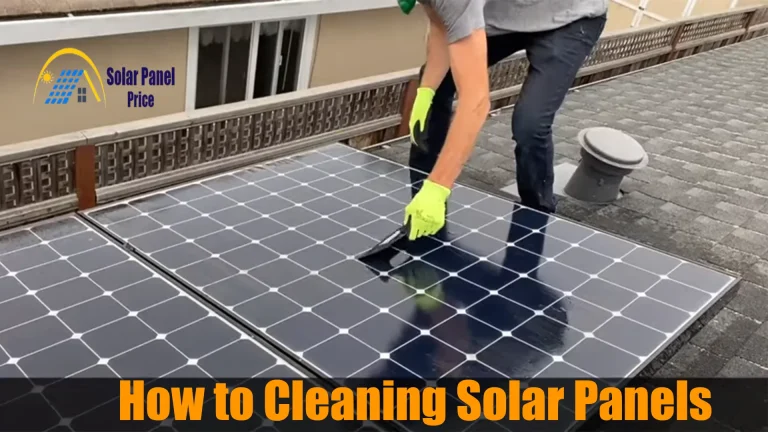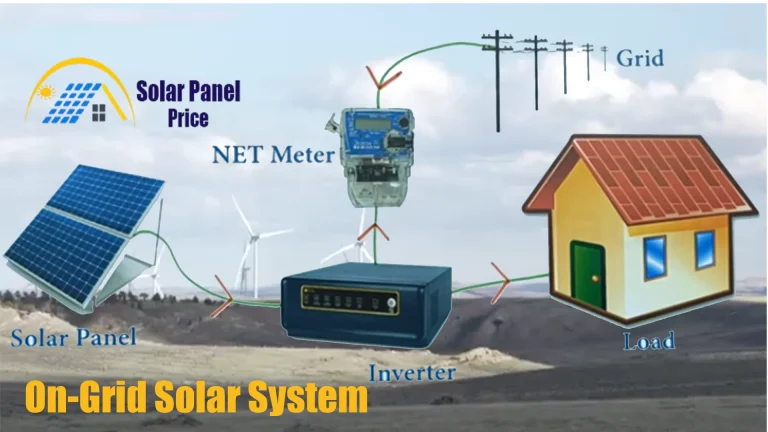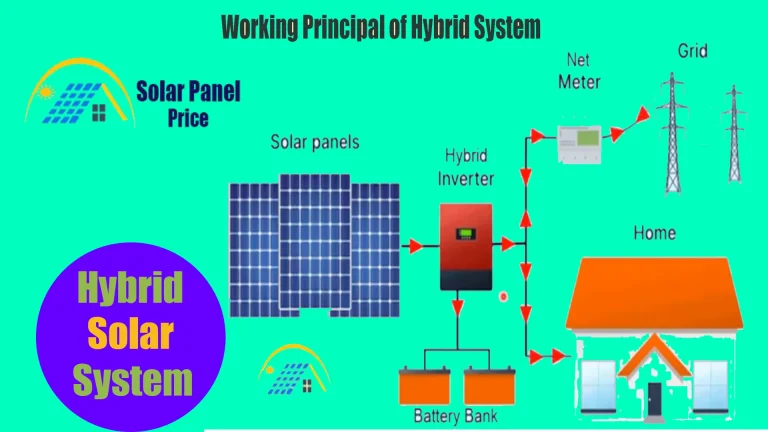Off-Grid Solar System in Pakistan | Energy Solution for Remote Areas
Are you facing shortages of electricity problems and heavy load-shedding increases daily in Pakistan? The per-unit cost is normal, and peak units are double charged by the electricity provider. If you are living in rural areas without access to the power grid. Off-grid solar systems provide you with freedom with their energy.
This system has many advantages like cost savings, energy independence, and the ability of generating its own electricity and storing electricity without relying on a grid station. It’s the best investment option for homeowners who want freedom from utility bills.
The system is specially designed for homeowners electricity needs.

What is An Off-Grid Solar System?
Off-grid systems are the best solution to give energy freedom; they are an alternative energy generating and called traditional electricity grid. Because they do not depend on local utility companies for backup, batteries are the main component of the system.
These systems capture the sunlight using solar panels and change it into electricity by using an inverter. The stored electricity in batteries can be used at night time and later used.
What’s the Process of an Off-Grid Solar?
When sunlight hits the surface on panel, the solar plates collect energy from the sun’s rays and power produced by PV cells. Silicon electrons move through circuits and become charged. The inverter then receives the generated current.
How Does An Off-Grid System Work?
An off-grid solar panel is mostly installed in open space, like on the tops of your home’s roof. When sun radiation hits a solar plate, solar converts it into direct current (DC) electricity. The inverter manages the flow of electricity from the solar plate to the batteries. All electricity produced by the solar plate is stored in batteries for use.
Batteries store extra power, and allow users to access it when the weather is cloudy or use it at night time.The inverter converts it into alternating current (AC) electricity for home appliances
Electricity Storage
Energy storage is a critical component of an off-grid solar system, which stores extra power that would otherwise go unused. When sunlight cannot charge our panels, we can utilize energy from the battery and excess power for later consumption.
Conversation of Electricity
When solar panels emit electricity, it comes from Direct current ( DC). Then, an inverter converts it into an alternative current ( AC) and sends it through the wire for your home and business uses
Electricity Production
Photovoltaic (PV) panels capture the harnesses of sun rays and transfer them into an inverter.
Backup
Stored electricity in batteries, we can be used as a backup for bad weather and night times.
Precautions for the Off-grid
If you plan to invest in off-grid, you must be aware of some precautions before installing it.
- Choose the correct size of a solar panel according to your energy needs.
- Solar battery type and size.
- Always choose the best-branded controllers and inverters.
- Sun ray’s tilt angle and temperature range.
These factors can impact your investment in solar panels.
How Are Off-Grid Solar Systems Created?
In the off-grid system, some Important components are used, including the following:
- Solar Panels
- Solar Batteries
- Wiring/cables
- PWM or MPPT charge controller
- Solar inverters
- DC Connectors
Ecoflow’s Off-Grid Solar System
Off-grid system installation is complicated and has heavy components to install on your own. Ecoflow Is designed to make it easy for everyone to go off-grid. It works on small battery banks for entire home energy needs.
This product customizes your energy needs 5x faster than a typical system and is easy to install, so you can easily start your off-grid journey in the right way.
Components for an Off-Grid Solar System
Off-grid systems are becoming popular in regions without having any electrical grid. The system requires primary components to generate, store, and distribute electricity. Below are some significant components for balancing the system.
Solar panels
Function: Solar panels are the primary and major source and most obvious component in off-grid systems. They capture the sunlight and change it into direct current (DC) electricity for home needs.
Types: Monocrystalline, polycrystalline, and thin-film are the best types with different efficiency and cost.
Key Considerations: Always choose a high-power-efficiency panel for small squares. Make sure they are angled correctly and have a perfect sun exposure system for your home.
Charge controller
Function: The main function of the charger controller is to control the flow of electricity, charge the battery properly, control batteries from overcharging, and increase battery life.
PWM (Pulse Width Modulation): Simple, lower in cost, and best for small system
MPPT (Maximum Power Point Tracking): High efficient, especially used in an extensive system
Key Considerations: MTTP charge controller is best for better performance and high efficiency
Batteries/Power Bank
Function: It is the second most expensive component after the solar panel in an off-grid system. Store the electricity which is generated by the solar panels in daytime. For use at night or during bad weather and cloudy days
Lithium-Ion Batteries have long lifespans, Higher efficiency, and maintenance-free attributes but are more expensive.
Lead-Acid Batteries: These are affordable but heavier and require more maintenance.
Key Considerations: Choose battery type based on your energy needs, budget, and required storage capacity,
Inverter
Function: The role of an Inverter is to convert solar DC current into AC(Alternating Current) electricity for household and office appliances. Choose a pure sine wave and High-quality inverter for sensitive loads in off-grid systems.
Pure Sine Wave Inverters: provide clean and high power suitable for all household and office appliances.
Modified Sine Wave Inverters: This is cheaper but might not be for sensitive electronics.
Key Considerations: Pure sine wave inverters are recommended for sensitive loads and efficiency
Monitoring System
Function: Users can easily track the performance and condition of their off-grid system. It will provide information on energy generation and use, battery life, and system health.
Types: Simple display monitors or advanced systems with remote monitoring.
Key Considerations: This best monitoring system helps maintain the energy of your solar system by quickly finding and resolving issues.
How do the Components Participate in Power Production?
Solar Panels:
The system’s main components convert sunlight into electricity and generate direct current (DC).
Charging Control
This controlling device, which monitors the energy flow from the solar plate to the batteries, is incomplete without the charger controller.
Solar Batteries
This is a storage device, store the extra electricity which is generated by solar panels in the daytime . We can use it at night time or in cloudy weather
Solar Inverter
This device converts DC current generated by solar panels into AC current, which we use for home appliances.
Off-Grid Only for a Few Appliances
It depends on your energy generation, storage, and needs, how much electricity your panel produces, and how much electricity your home needs.
Who Should Install Off-Grid Solar Systems?
Off-grid systems work well for individuals and tiny homes in Pakistan.
Rural and Remote Communities
Solar systems are best for rural areas where people do not easily access the electricity grid. Off-grid can continue electric supply for households, schools, health centers, and small businesses, improving the living standards of village homeowners.
Agricultural and Farm Owners
Agriculture and farms require a reliable power supply. However, the electricity grid is not available in rural areas of Pakistan. Solar energy stands as a bright opportunity for former and rural property owners. Install solar panels and contribute to a greener future.
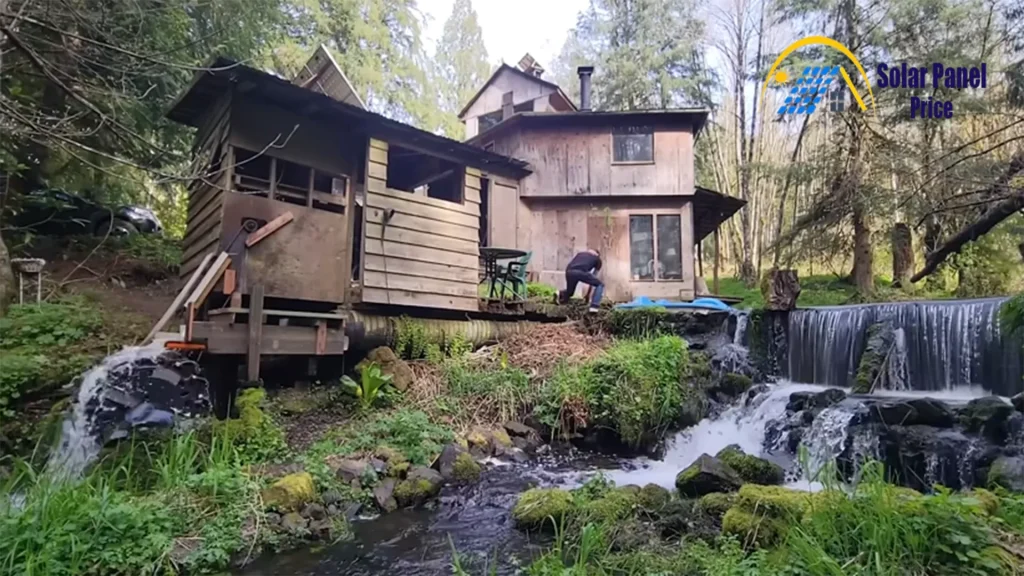
Eco-conscious Individuals
Eco-conscious households understand the environmental impact of traditional energy sources. Off-grid systems allow them to generate renewable, clean electricity and contribute to a greener, sustainable future.
Benefits of Off-Grid system
Off-grid offers numerous installation benefits that are possible virtually anywhere. Investing in this system allows you to relax from common electricity problems and high electricity bills that other homeowners face.
Energy Independence
Off-grid systems provide you complete independence from power outages and unavailability of electricity for hours or even days. Depending on utility line damages or power cuts and the time required to restore the supply. And protect you from high electricity bills and rate hikes. Generate its electricity when it comes and goes.
Environmentally Friendly
Solar systems produce clean and renewable energy and are more efficient in conserving natural resources. system water to generate electricity like a utility grid; and reduce carbon footprint and help create a cleaner environment.
Reliability
Off-grid provides the best power supply in those areas where grid connectivity is challenging. It doesn’t matter if there is load-shedding, a fault in the system, or the grid fails due to a natural disaster. You will always have access to energy and lights.
Versatility
These solar systems are for individual, small home, or entire community energy needs. They are especially used in Agriculture projects.
Cost Savings
By installing off-grid solar systems, users can reduce monthly electricity bills.
How to Size Your Off-Grid System
Off-grid is a smart solution for homeowners. Designing and sizing is an important step and a complex task to figure out the main constraints. The right steps and considerations should be the starting point for the design, appropriate system size, and energy needs efficiency. You can approach the system from the following angles.
Calculate Your Energy Needs
First, determine your daily, monthly energy consumption and divide it by 12 to figure it out. This involves identifying the number of hours you use and all electrical devices. Off-grid will tend to overproduce in the summer with sun exposure. This will give you an estimate of your energy needs.
Assess Peak Sun Hours
Understanding the Peak Sun Hours greatly depending on the sunlight available in your location and local climate. Determine the peak hour of sunlight when the system makes the most of its solar power. The peak sun hour in Pakistan is 5 to 6.
Advantages of Off-Grid System in Pakistan
The key advantages of an off-grid system are listed below.
- The off-grid system does not totally depend on the electrical power grid, it is linked directly to solar and batteries. During power outages and cloudy weather, these batteries provide reinforcement.
- The system generates enough power; no energy is required from the utility grid station.
- Reduce electricity bills to zero.
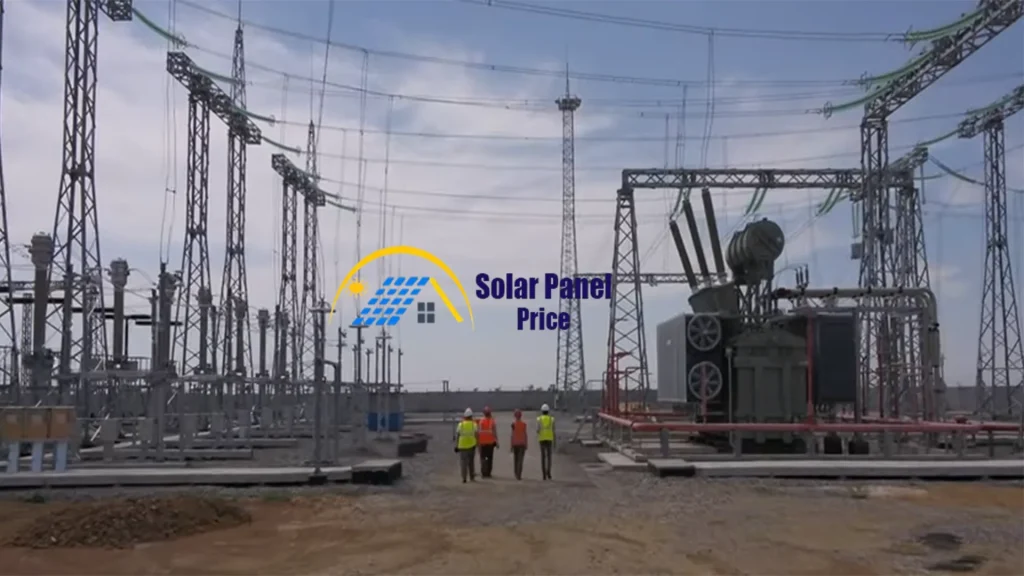
Disadvantages of Off-Grid Systems in Pakistan:
Off-grid systems require a good amount of investment. If it completely relies on the solar system. if you buy a generator with other components like batteries, making it expensive . Many people leave it due to the initial high cost .
- It required “Higher Upfront Investment” than for other systems
- Battery replacement and ongoing maintenance
- Output power limitation due to cloudy weather.
Factors Affecting Off-Grid System Design
When we design an off-grid system, many factors come into play. These include the energy needed, the sun’s brightness, and weather conditions. First, think deeply and clearly about all points that affect the system design.
Energy Demand and Consumption Patterns
When designing the off-grid, it is key to calculate the household energy use daily, which appliances use it, and when. This will help figure out the correct size consumption patterns.
Geographical Location and Solar Insolation
When you install your off-grid system, it is important to know the amount of solar energy generated. In geographical locations, sun exposure varies based on climate conditions.
Off-Grid Price in Pakistan
The price of an off-grid solar system depends on different factors, like size, quality, capacity, and number of plates. The price is different in different cities of Pakistan. We can not give you the exact price of an off-grid system; you must visit your local market and get advice from a solar consultant.
Benefits Of Off-Grid Technology In Pakistan
Everyone knows about the electricity load shedding in Pakistan. Off-grid is the best option, as it does not require a local grid station. It’s completely dependable. It relays sunlight and sends extra energy to batteries, which we use at night and in cloudy weather.
Is Off-Grid Worth It in Pakistan?
An off-grid system depends on the energy crisis faced by different communities in Pakistan. With an abundance of sunlight in rural areas, Off-grid systems offer a dependable and eco-friendly way to get electricity, cutting down on the need for the main power grid and fossil fuels.
If there is no grid nearby, then go for Off-grid because complete setup of off-grid is expensive. You need a large battery bank for nights.
Best Solar Company in Pakistan for Off-Grid system
Canadian, Jinko, Longi, and JA are Pakistan’s best imported solar plates and companies for off-grid.
Conclusion
Off-grid solar systems provide energy independence, low cost, and environmental benefits and are not required to be linked with utility grid stations. This system is best for improving rural population living conditions where the electricity grid is not available.

